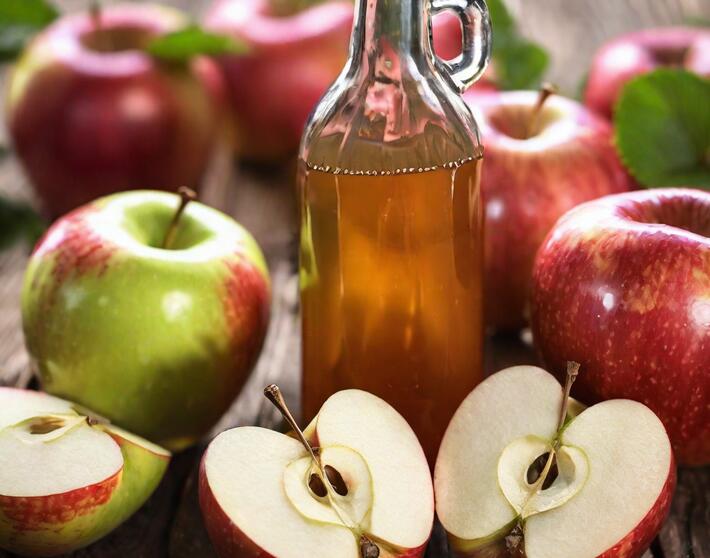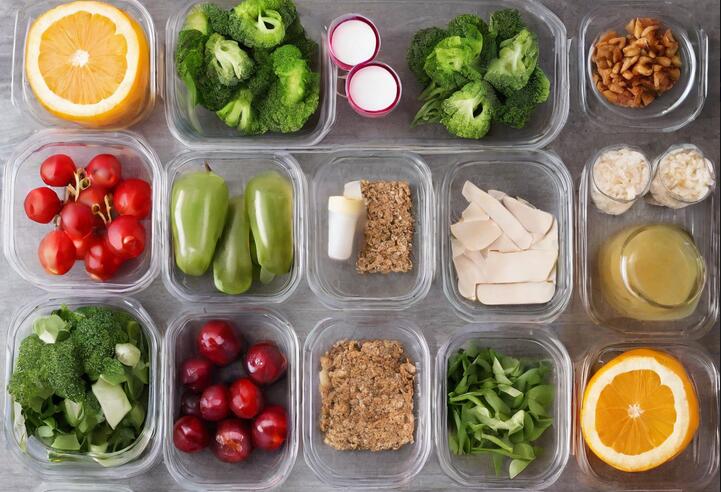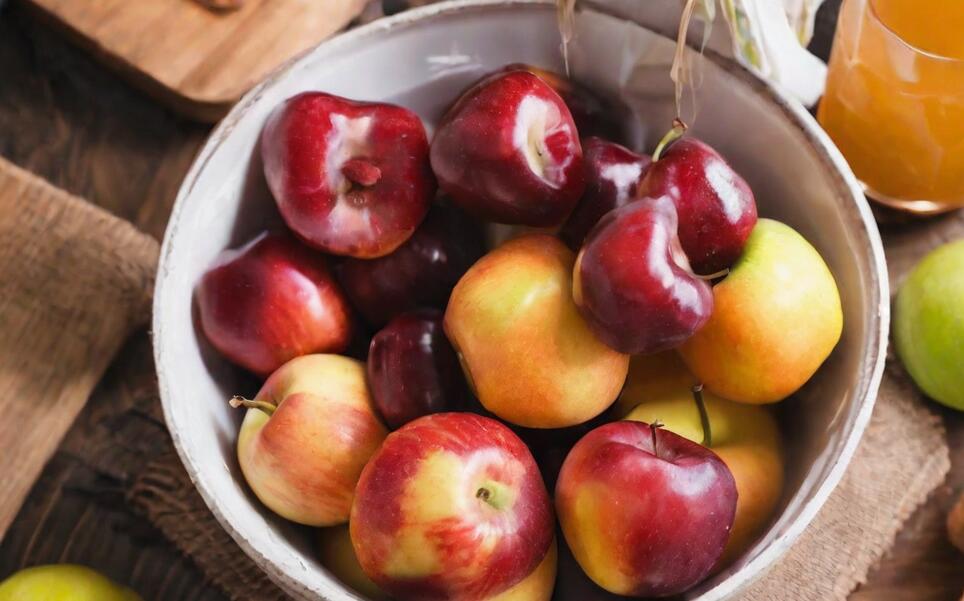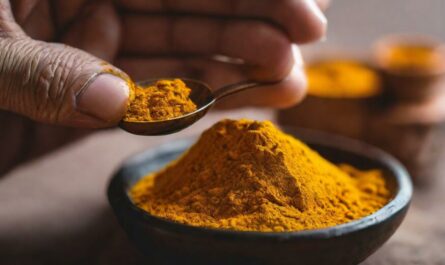The apple cider vinegar (ACV) diet has gained popularity in recent years for its potential health benefits. This comprehensive guide aims to provide you with all the necessary information about the ACV diet, including its benefits, instructions, and helpful tips. Whether you’re considering starting the ACV diet or simply want to learn more, this guide has got you covered.
What is Apple Cider Vinegar?
Apple cider vinegar is a type of vinegar made from fermented apple juice. It undergoes a two-step fermentation process, starting with the conversion of sugars in the apple juice to alcohol by yeast, and then the conversion of alcohol to acetic acid by bacteria.
ACV is rich in beneficial components, including acetic acid, vitamins, minerals, and antioxidants. ‘The Mother’ refers to the cloudy, stringy substance that settles at the bottom of the bottle, containing strands of proteins, enzymes, and friendly bacteria.
ACV has been used for centuries as a natural remedy for various ailments. It is commonly used in cooking, as a salad dressing, marinade, or ingredient in sauces and beverages.

Science-Backed Health Benefits of Apple Cider Vinegar
ACV is known for its potential health benefits, supported by scientific research. Let’s explore some of the key benefits:
1. Improved Digestive Health
ACV can promote healthy digestion by increasing stomach acid production and stimulating digestive enzymes. This may aid in the breakdown of food and enhance nutrient absorption. Additionally, ACV may help alleviate symptoms of indigestion, bloating, and heartburn.
2. Blood Sugar Regulation
Several studies suggest that ACV may help regulate blood sugar levels, especially after meals. It can improve insulin sensitivity and reduce insulin resistance, potentially benefiting individuals with diabetes or pre-diabetes. ACV may also help lower fasting blood sugar levels.
3. Weight Loss Potential
ACV has gained popularity as a potential aid for weight loss. It may support weight loss by promoting satiety, reducing calorie intake, and increasing fat burning. ACV can help control appetite, prevent overeating, and improve metabolism.
However, it’s important to note that ACV alone is not a magic solution for weight loss. It should be combined with a balanced diet and regular exercise for optimal results.
4. Cholesterol and Heart Health
Some research indicates that ACV may lower total cholesterol, triglyceride levels, and blood pressure. These effects may contribute to improved heart health and a reduced risk of cardiovascular diseases. However, more studies are needed to understand the precise mechanisms behind these benefits.
How to Prepare for the ACV Diet?
Before starting the ACV diet, it’s essential to assess whether it is suitable for you. Consider consulting a healthcare professional, especially if you have pre-existing health conditions or take medications. They can provide personalized advice and guidance based on your specific needs.
Understanding your dietary goals and expectations is also crucial. The ACV diet is not a one-size-fits-all approach, and its effectiveness may vary among individuals. Setting realistic goals and adopting a long-term, sustainable approach is key to success.
Apple Cider Vinegar Diet Instructions
To incorporate ACV into your diet effectively, follow these instructions:
1. Starting with the Right Dosage
Begin with a small amount of ACV, such as 1-2 teaspoons, diluted in a glass of water. Gradually increase the dosage to 1-2 tablespoons per day, if well-tolerated. It’s important to listen to your body and adjust the dosage accordingly.
2. When and How Often to Consume ACV
It’s recommended to consume ACV before meals, as it may help improve digestion and control blood sugar levels. Ideally, have it 15-20 minutes before a meal, up to three times a day. However, it’s important to find a frequency that works best for you and your body.
3. Mixing ACV with Water or Other Beverages
Diluting ACV in water or other beverages is essential to minimize its acidity and protect your tooth enamel. Consider adding a small amount of honey or lemon juice to enhance the taste, if desired. You can also experiment with different combinations, such as adding ACV to herbal teas or smoothies.
4. Best Practices for ACV Consumption
When consuming ACV, it’s important to drink it slowly and rinse your mouth with water afterward to reduce the potential impact on tooth enamel. If you experience any discomfort or adverse effects, such as digestive upset or throat irritation, reduce the dosage or discontinue use.
Apple Cider Vinegar Diet Meal Planning
Creating a well-rounded meal plan that incorporates ACV can help you maintain a balanced diet. Consider the following tips:

1. Complementary Foods and Recipes
Include a variety of whole foods, such as fruits, vegetables, lean proteins, whole grains, and healthy fats. Incorporate ACV into salad dressings, marinades, or even homemade sauces. Here are some recipe ideas to get you started:
Apple Cider Vinegar Salad Dressing
Ingredients:
- 2 tablespoons of ACV
- 1 tablespoon of olive oil
- 1 teaspoon of honey or maple syrup
- 1 teaspoon of Dijon mustard
- Salt and pepper to taste
Instructions:
In a small bowl, whisk together ACV, olive oil, honey or maple syrup, Dijon mustard, salt, and pepper until well combined. Drizzle over your favorite salad.
ACV Infused Water:
Ingredients:
- 1-2 tablespoons of ACV
- 1 cup of water
- Sliced fruits or herbs for flavor (optional)
Instructions:
In a glass or water bottle, combine ACV and water. Add sliced fruits or herbs for flavor, if desired. Let it infuse for a few minutes before drinking.

2. Sample Meal Plan Incorporating ACV
Here’s a sample meal plan to give you an idea of how to incorporate ACV into your daily meals:
Breakfast: ACV Overnight Oats
Ingredients:
- 1/2 cup of rolled oats
- 1/2 cup of almond milk
- 1 tablespoon of chia seeds
- 1 tablespoon of ACV
Toppings: sliced fruits, nuts, and a drizzle of honey
Instructions:
In a jar or container, combine rolled oats, almond milk, chia seeds, and ACV. Stir well, cover, and refrigerate overnight. In the morning, add your favorite toppings and enjoy.
Lunch: Grilled Chicken Salad with ACV Dressing
Ingredients:
- Grilled chicken breast
- Mixed greens
- Cherry tomatoes
- Cucumber slices
- Red onion slices
- ACV salad dressing (recipe provided above)
Instructions:
Arrange the mixed greens on a plate and top with grilled chicken, cherry tomatoes, cucumber slices, and red onion slices. Drizzle with the ACV salad dressing.
Snack: Apple Slices with Almond Butter and ACV
Ingredients:
- Apple slices
- Almond butter
- 1 teaspoon of ACV
- Instructions:
- Spread almond butter on apple slices and drizzle with ACV for an extra tangy flavor.
Dinner: Baked Salmon with Roasted Vegetables
Ingredients:
- Salmon fillet
- Assorted vegetables (e.g., broccoli, bell peppers, carrots)
- Olive oil
- Lemon juice
- Salt and pepper
- 1 tablespoon of ACV
Instructions:
Preheat the oven to 400°F (200°C). Place the salmon fillet on a baking sheet lined with parchment paper. Arrange the vegetables around the salmon. Drizzle with olive oil and lemon juice.
Season with salt and pepper. Bake for 15-20 minutes or until the salmon is cooked through and the vegetables are tender. Before serving, drizzle the salmon with ACV for an extra burst of flavor.
Dessert: Tangy Fruit Salad
Ingredients:
- Assorted fruits (e.g., berries, watermelon, pineapple)
- 1 tablespoon of ACV
Instructions:
Cut the fruits into bite-sized pieces and place them in a bowl. Drizzle with ACV and gently toss to combine. Refrigerate for a few minutes before serving.
Remember to modify the meal plan according to your preferences and dietary needs. Experiment with different recipes and find what works best for you.
Potential Side Effects and How to Mitigate Them
While ACV is generally safe for consumption, some individuals may experience certain side effects. It’s important to be aware of these and take necessary precautions:
1. Acid Reflux and ACV
ACV’s acidity may worsen symptoms of acid reflux or gastroesophageal reflux disease (GERD). If you have these conditions, it’s best to consult a healthcare professional before incorporating ACV into your diet. They can provide personalized advice based on your specific situation.
2. Impact on Tooth Enamel and Prevention Strategies
ACV’s acidity can erode tooth enamel over time. To minimize this risk, dilute ACV, use a straw when consuming, rinse your mouth with water afterward, and wait at least 30 minutes before brushing your teeth. Regular dental hygiene practices, such as brushing and flossing, are also crucial.
3. Possible Interactions with Medications
ACV may interact with certain medications, including diabetes medications, diuretics, and potassium-lowering drugs. It’s important to consult your healthcare provider before incorporating ACV into your diet if you take any medications. They can advise you on the potential interactions and help you make informed decisions.

Monitoring Your Progress on the ACV Diet
To track your progress and make necessary adjustments, consider the following tips:
1. Setting Realistic Goals and Milestones
Establish achievable short-term and long-term goals related to weight loss, blood sugar control, or other health aspects.
Break them down into smaller milestones to celebrate your progress along the way. For example, you could aim to lose 1-2 pounds per week or lower your fasting blood sugar levels by a certain percentage within a month.
2. Tracking Weight and Health Markers
Regularly monitor your weight, body measurements, blood sugar levels (if applicable), and other relevant health markers. Keep a record of your progress to identify any patterns or trends. Consider using a weight-tracking app or a journal to make tracking easier and more organized.
3. Adjusting Your Diet Plan as Needed
Based on your progress and feedback from your body, make adjustments to your ACV dosage, meal plan, or overall diet strategy.
For example, if you’re not seeing the desired weight loss, you might consider reducing your calorie intake or increasing your physical activity level. Consult a healthcare professional or a registered dietitian for personalized advice if required.
Remember that everyone’s progress on the ACV diet may vary, and it’s important to focus on your journey rather than comparing yourself to others. Be patient and consistent, and celebrate every milestone along the way.
FAQs about Apple Cider Vinegar Diet Instructions
1. Can I drink ACV without diluting it in water?
It is not recommended to consume undiluted ACV as it may cause irritation or damage to your esophagus or tooth enamel. Always dilute it in water or other beverages.
2. Can I take ACV capsules instead of liquid ACV?
ACV capsules are available as an alternative for individuals who struggle with the taste or acidity of liquid ACV. However, it’s important to follow the dosage recommendations provided by the manufacturer.
3. Can I take ACV while on medication?
ACV may interact with certain medications, so it’s crucial to consult your healthcare provider before incorporating ACV into your diet if you take any medications. They can advise you on potential interactions and help you make informed decisions.
4. Can I consume too much ACV?
Excessive consumption of ACV may have adverse effects on your health. Stick to the recommended dosage and frequency, and listen to your body’s response. If you experience any discomfort or adverse effects, reduce the dosage or discontinue use.
5. Can I lose weight just by consuming ACV?
ACV alone is not a magic solution for weight loss. It should be part of a comprehensive approach that includes a balanced diet, regular exercise, and other healthy lifestyle habits.
ACV may support weight loss by promoting satiety, reducing calorie intake, and increasing fat burning, but it should not be relied upon as the sole method for weight loss.
Dos and Don’ts of the ACV Diet
To make the most of the ACV diet while ensuring safety and effectiveness, keep the following dos and don’ts in mind:
Dos:
- Do dilute ACV in water or other beverages to protect your teeth and stomach lining.
- Do start with a small dosage and gradually increase it to allow your body to adjust.
- Do maintain a balanced diet and regular exercise routine alongside the ACV diet.
- Do stay hydrated by drinking plenty of water throughout the day.
- Do monitor your body’s response and adjust the dosage or frequency if necessary.
Don’ts:
- Don’t consume undiluted ACV as it may cause irritation or damage to your esophagus or tooth enamel.
- Don’t exceed the recommended dosage or frequency, as excessive ACV consumption may have adverse effects.
- Don’t rely solely on ACV for weight loss or health improvements; it should be part of a comprehensive lifestyle approach.






